China accuses Australia’s politicians of spreading 11 ‘fabricated lies’ about COVID-19 - and denies the virus started in Wuhan
China has detailed a long list of what it says are “fake” claims made by Australia - and even denied the virus originated in Wuhan.
National
Don't miss out on the headlines from National. Followed categories will be added to My News.
- Australia cuts funds to wealthy China think tank
- China think tank’s moves deeply problematic
- Aussies: Stop relying on China
China has slammed Australia for spreading “fake information” about COVID-19 and denied the virus originated in Wuhan’s wet markets.
The Chinese Communist Party’s Xinhua News Agency even claimed that Beijing was “a victim” of an Australian campaign to discredit the communist nation.
Xinhua published a list of 11 “fabricated lies” it claims Australian media and politicians have been telling the world about Beijing’s role in allowing the pandemic to spread around the world.
China’s propaganda machine has been desperately trying to “rewrite history” after initially trying to cover up the deadly outbreak, human rights experts say.
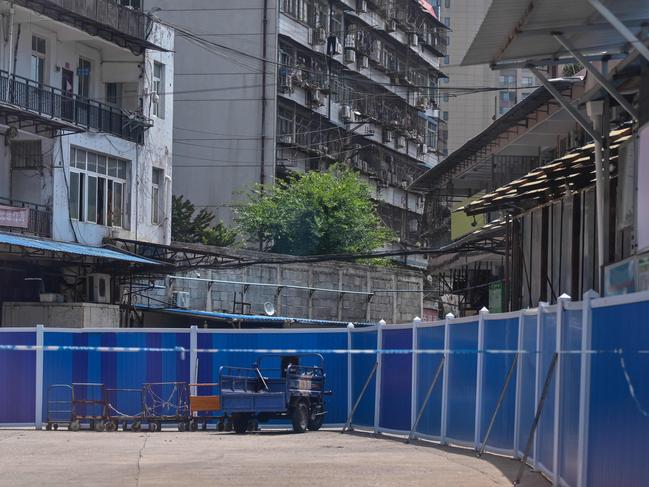
“Some Australian politicians and media outlets have been fabricating lies on COVID-19 of one kind or another,” the Xinhua article asserted.
“They have played a trick of a thief crying ‘stop thief’ to blame China for spreading fake information.
“China is a victim of disinformation, not a disseminator.”
Among the “fabricated lies” peddled by Australia were that COVID-19 originated in Wuhan, China allowed the virus to spread around the world and that China launched cyber-attacks against Australia.
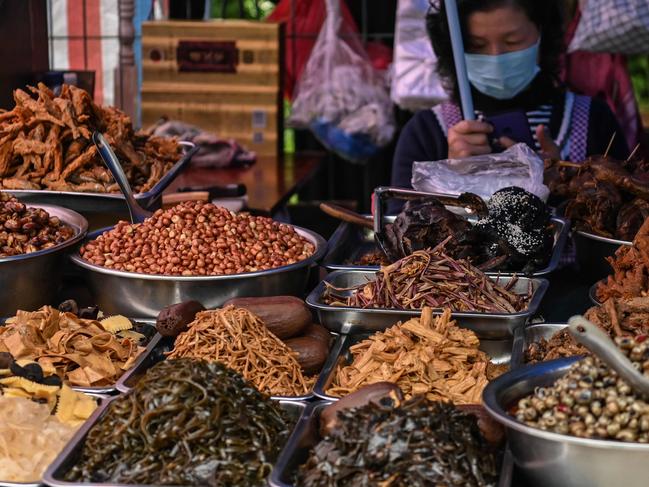
The Daily Mail said the news agency also denied that Chinese eat bats and that the virus could have originated in the Wuhan Institute of Virology.
Diplomatic relations between Australia and China have soured dramatically since the pandemic began.
Prime Minister Scott Morrison angered Beijing when he called for an independent international inquiry into the origins of COVID-19.
China has also been accused of silencing doctors and media who tried to raise the alarm when the first wave of cases presented to Wuhan hospitals in November 2019.
Li Wenliang, a doctor who tried to warn of “a new SARS” virus in early December, was arrested by Chinese authorities and forced to sign a confession admitting to “spreading false rumours”.
He later died of coronavirus in February.
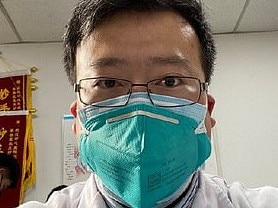
“As the crisis of COVID-19 has shifted from being a China problem to a global one, Chinese authorities have switched gears. From the early days of a defensive cover-up and censorship, they have surged into an all-out propaganda offensive,” China expert Natasha Kassam wrote in a paper for the Lowy Institute.
“The message lauds the strength and resolve of China’s party-state and deflects scrutiny of the systemic failures and cruel incompetence of the Chinese Communist Party’s initial response to COVID-19.
“The propaganda machine in China is known for its ability to rewrite history within the country, through a combination of censorship and repression, and the ensuing days and weeks have seen this success replicated overseas.”
The notion of a transparent investigation into the response of Chinese officials in the early stages of the outbreak was dismissed by the communist party and resulted in a backlash against Australia.
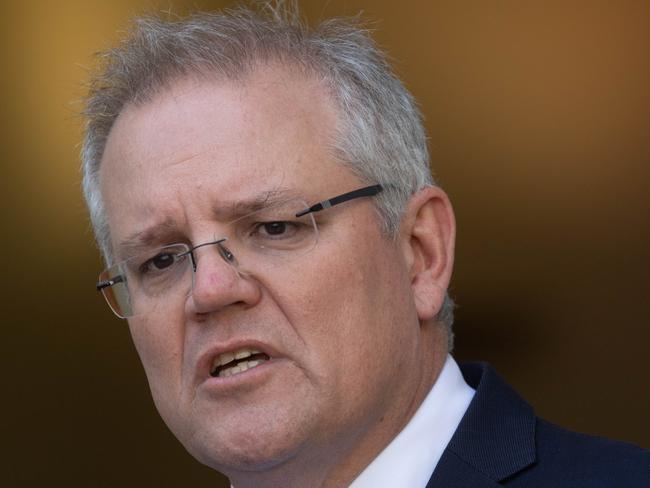
Shortly after, Chinese Ambassador Cheng Jingye warned that Chinese consumers might boycott Australian goods like beef and wine if Mr Morrison continued his ‘dangerous’ rhetoric.
China retaliated in May by introducing an 80.5 per cent tariff on Australian barley imports which total about $1.5 billion per year.
A further blow came that month when China black-listed three of Australia’s largest beef producers.
Then China’s Education Bureau cautioned students not to travel to Australia due to ‘racist incidents’.
The bitter diplomatic row reached new heights last month when Mr Morrison announced Australia was under cyber attack from a malicious “state-actor” targeting banks, transport networks, electricity grids and various other government agencies.
Security experts have pointed the finger squarely at Beijing.
HONG KONG ACTIVISTS ‘PLOTTING REVOLUTION’: CHINA
China has accused Hong Kong democracy activists of trying to start a revolution as it warned some campaigning for recent primaries may have breached a tough new security law it imposed on the city.
The bellicose comments by the Liaison Office, which represents China’s government in the semi-autonomous city, dramatically heighten the risk of prosecution for opposition parties and leading figures.
More than 600,000 Hong Kongers turned out over the weekend to choose candidates for upcoming legislative elections despite warnings from government officials that the exercise could breach Beijing’s sweeping new law.
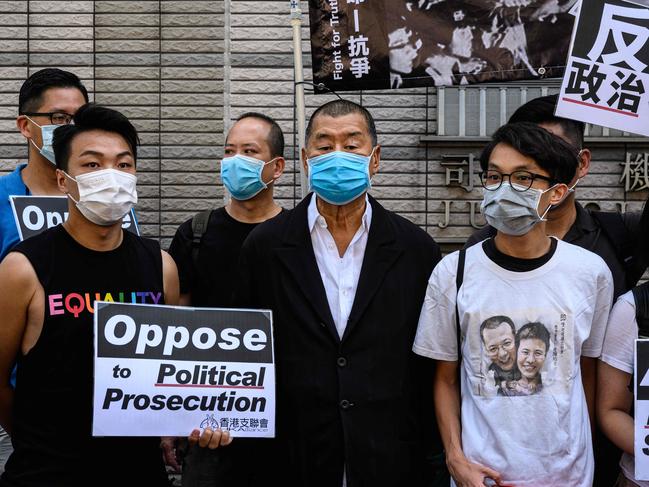
Polls for the city’s partially elected legislature are due to take place in September.
Pro-democracy parties are keen to use seething public anger towards Beijing’s increasingly authoritarian rule to win a majority within a chamber that has always been weighted in favour of pro-establishment parties.
Control could give them a greater ability to stall budgets and legislation, one of the few tactics left open to the opposition camp.
But in a statement released late Monday, the Liaison Office described the primaries as “a serious provocation against the current election system”.
It said campaigning that pushed to take control of and paralyse the chamber is a breach of Article 22 of the security law.
Article 22 targets “subverting state power”. It outlaws “serious interference and obstruction” of the central and Hong Kong governments, or any act that causes them to be “unable to perform their functions normally”.
The Liaison Office’s statement also singled out Benny Tai, a prominent democracy activist who played a leading role in organising the primary.
“The goal of the Benny Tai gang and the opposition camp is to seize power to govern Hong Kong, with a vain attempt to launch a Hong Kong version of a ‘colour revolution’,” the office said.
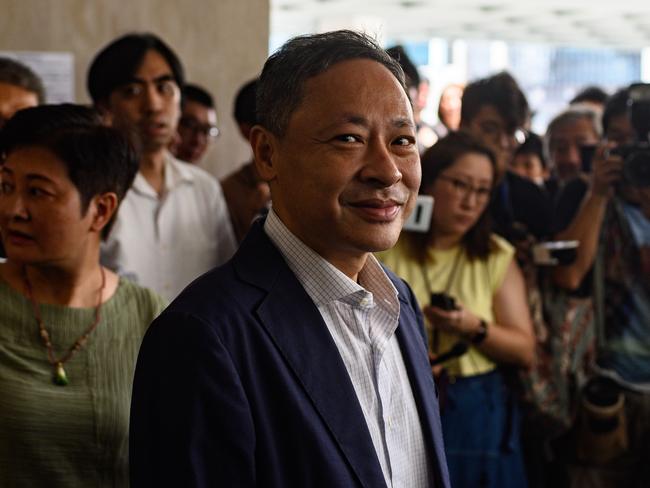
Colour revolution is a term used to describe multiple popular protest movements around the world that either swept a government from power or tried to.
However in authoritarian Communist China — itself a state built from revolution — the term has frequently been used by both the government and state media to describe an illegitimate revolution backed by hidden, usually western, forces.
Tai, a law professor, has previously been jailed for his involvement in peaceful pro-democracy protests in 2014.
On Tuesday, the Apple Daily newspaper published a column by Tai in which he hailed the primaries.
“Threats from the powerful did not deter tens of thousands of citizens from coming out and casting a ballot,” he wrote.
“They have not given up on their determination to pursue democracy and universal suffrage.” Apple Daily is owned by Jimmy Lai, one of the few tycoons in Hong Kong to openly support democracy. He is also being prosecuted for taking part in pro-democracy protests.
US Secretary of State Mike Pompeo meanwhile sent his congratulations “to Hong Kong’s pan-democrats for a successful primary” in a Twitter post calling for the Legislative Council’s September elections to be “equally free and fair.”
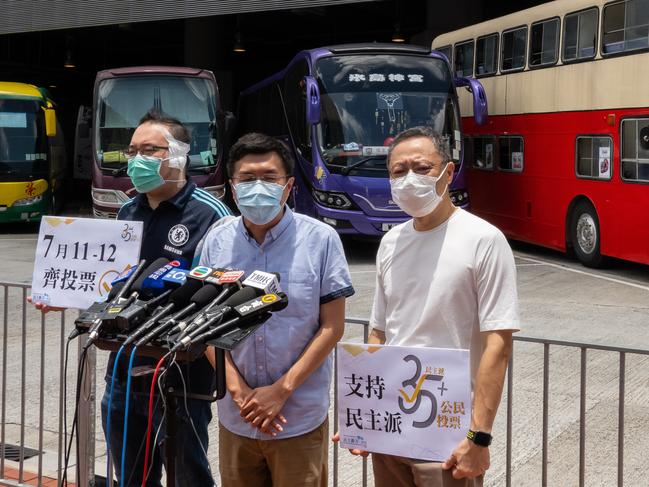
Hong Kong has seen waves of pro-democracy demonstrations over the last decade. But last year the city was convulsed by seven straight months of huge and often violent protests.
In response, Beijing imposed its security law in a bid to end the unrest once and for all.
The legislation bypassed Hong Kong’s legislature and its contents were kept secret until the law was enacted at the end of last month.
It targets subversion, sedition, terrorism and foreign collusion with penalties of up to life in prison.
But its broad phrasing — such as a ban on encouraging hatred of China’s government — has sent fear rippling through a city used to speaking its mind.
Beijing now claims jurisdiction over some serious cases and has allowed its intelligence apparatuses to set up shop openly in the territory for the first time.
Those provisions have ended the legal firewall that existed between the Chinese mainland’s Communist Party-controlled courts and Hong Kong’s independent judiciary.
National security laws are routinely used on the mainland to crush dissent. China says the Hong Kong legislation is needed to return stability after last year’s protests, which it has portrayed as a foreign plot to destabilise the motherland.
Opponents, including many Western nations, say the law has started to demolish the “One Country, Two Systems” model where China agreed to let the city retain key civil liberties, as well as legislative and judicial autonomy, until 2047.
‘VIOLENCE’: CHINA ISSUES AUSSIE TRAVEL WARNING
China has issued a travel warning for Australia, saying that Chinese nationals have faced a “marked increase” in racism and violence in the country.
The statement, issued by the Ministry of Foreign Affairs (MFA), came after Prime Minister Scott Morrison last week announced the Federal Government would offer permanent residency to some Hong Kong citizens, which further intensified hostility between China and Australia’s already strained relations.
“Recently, there has been a marked increase in racial discrimination and violence in Australia,” China’s statement said.
“The Australian media continue to incite anti-China and hatred of China sentiment.
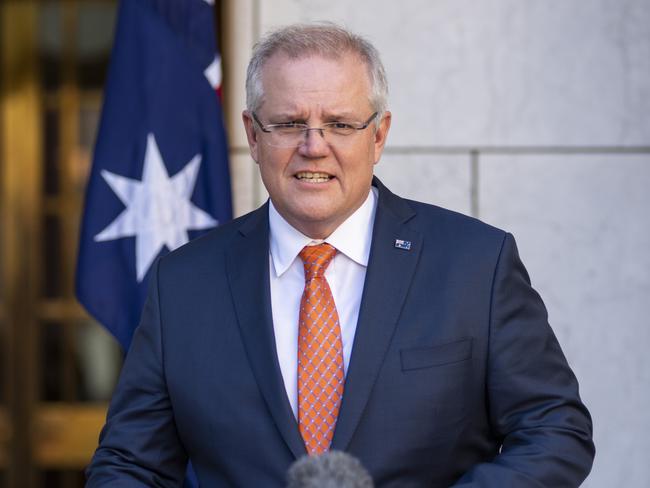
“Relevant Australian law enforcement agencies have arbitrarily searched Chinese citizens and seized their articles, which may cause harm to the personal and property safety of the Chinese citizens in Australia.
“The Ministry of Foreign Affairs and the Chinese Embassy and Consulates in Australia remind Chinese citizens to be extra careful about the local security risks and be cautious about travelling to Australia in the near future.”
Australia’s borders remain closed to foreign nationals due to the coronavirus pandemic.
Last week, Australia’s Department of Foreign Affairs and Trade (DFAT) issued its own warning about China.
“Authorities have detained foreigners because they’re ‘endangering national security,’” DFAT said in a statement.
“Australians may also be at risk of arbitrary detention.”
‘GROSS INTERFERENCE’
China has labelled Australia’s Hong Kong visa and extradition treaty announcements as “hypocrisy” and a “gross interference” in the country’s internal affairs.
A Chinese Embassy spokesman said Australia was “lifting a rock only to hit its own feet”.
“China strongly deplores and opposes the groundless accusations and measures announced by the Australian government with regard to Hong Kong, which is a serious violation of international law and basic norms governing international relations, and a gross interference in China’s internal affairs,” a spokesman said.
“The Australian side has been clanking that they oppose ‘foreign interference’. However, they have blatantly interfered in China’s internal affairs by making irresponsible remarks on Hong Kong related issues. Its hypocrisy and double standard is exposed in full.
“We urge the Australian side to immediately stop meddling in Hong Kong affairs and China’s internal affairs under any pretext or in any way.
“Otherwise, it will lead to nothing but lifting a rock only to hit its own feet.”
The spokesman said the laws would not affect the rights and interested enjoyed by Hong Kong residents and foreign businesses operating there.
“Hong Kong affairs are China’s internal affairs.,” the spokesman said.
PM PLEDGES TO HELP AUSSIE EXPATS
Australia has scrapped its extradition agreement with Hong Kong and residents of the once semi-autonomous city will be given extended visas and a pathway to permanent residency.
It comes after the Department of Foreign Affairs and Trade upgraded its travel advice for Hong Kong, warning Australians to reconsider their need to stay there if they are concerned about sweeping security laws imposed by Beijing.
Prime Minister Scott Morrison announced the major changes today and said other governments across the globe had been “very consistent in expressing our concerns about the imposition of the national security law on Hong Kong”.
“And so Australia today has taken steps to suspend our extradition agreement. We have formally notified Hong Kong and advised the Chinese authorities,” Mr Morrison said.
Current or future students from Hong Kong will be able to stay for a total of five years once they have graduated, with a pathway to permanent residency at the end of the period.
Temporary visa holders are also set to benefit.
“If you’re a temporary visa holder, your visa will be extended to an additional five years from today, in addition to the time you’ve already been in Australia with a pathway to permanent residency at the end of that period. And we will also provide a 5-year visa with a pathway to permanent residency for future Hong Kong applicants for temporary skilled visas, subject to meeting an updated skills list and appropriate markingtesting,” he said.
“We will also put arrangements in place to ensure we focus on Hong Kong applicants to study and work in regional areas, to help address skills shortages in those areas, with express pathways to permanent residency, as already applies after three years. And we will also look at new incentives and arrangements to attract export-orientated Hong Kong-based businesses to relocate to Australia, particularly where they have a strong potential for future growth and employment of Australians.
“So, for existing temporary work visa holders, student visa holders, and graduate student visa holders, they can be here for five years.”
Other Hongkongers who do not fit into these categories are able to apply for Australia’s refugee and humanitarian visa streams.
Earlier, The Department of Foreign Affairs and Trade updated its advice for Hong Kong, where about 100,000 Australian expats live.
“The new national security legislation for Hong Kong could be interpreted broadly. Under the law, you could be deported or face possible transfer to mainland China for prosecution under mainland law,” it says.
“The full extent of the law and how it will be applied is not yet clear. You may be at increased risk of detention on vaguely defined national security grounds. You could break the law without intending to.”
“If you’re concerned about the new law, reconsider your need to remain in Hong Kong.”
CHINA’S CHILLING THREAT
China has warned there will be a “huge impact” to the Australian economy if it provides fleeing Hong Kong residents a safe haven in the latest flare-up of tensions between the two countries.
In a scathing editorial by the Chinese Communist Party’s media mouthpiece, Australia was warned that such a move would have a “escalate tensions between China and Australia even further” and the economy would take a hit.
“Anyone with knowledge of China-Australia trade could see that political provocations over the Hong Kong issue will only end up being a bitter pill for the country’s economy to swallow,’ the Global Times editorial read.
“Unfortunately, the Morrison Government doesn’t seem to quite understand it.”
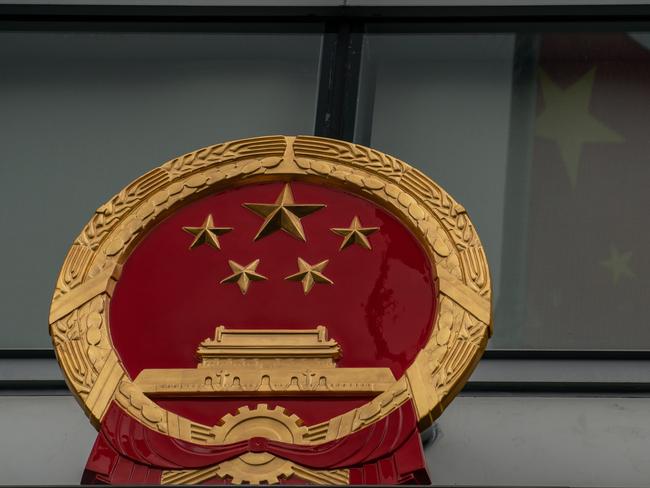
It claimed an influx of Hong Kong immigrants would hurt Australia’s “contracting” economy.
“Immigrants from Hong Kong may only bring uncertainty and pressure to the local economy, which is something it cannot afford,” the piece read.
“With China-Australia relations already strained, no one should underestimate the repercussions to the Australian economy from a further deterioration of bilateral ties.”
The publication wrote if China-Australia relations continued to worsen over Hong Kong – the Asian superpower’s “bottom line” issue – damage to business and investor confidence would be “unprecedented”.
“The subsequent impacts may involve Australia’s tourism, investment, education, and trade sectors, among others, generating immeasurable losses to countless local businesses,” it wrote.
It comes after Scott Morrison recently announced that the Government was looking at ways it could offer Hongkongers assistance after China introduced new laws that threaten their freedoms and right to protest.
The security laws give Beijing powers to significantly impact life in Hong Kong, which critics say directly undermines the “one country, two systems” framework agreed to more than two decades ago.
Australians have also been warned by the Federal Government to avoid travel to China. New travel advice said citizens could be targeted for “endangering national security” and be “arbitrarily detained”.
The Chinese embassy in Canberra hit back on Wednesday.
“Foreigners in China, including the Australians, as long as they abide by the Chinese laws, have no need to worry at all,” the Embassy said.
AUSSIES WARNED NOT TO GO TO CHINA
Australians abroad could be “arbitrarily detained” if they enter China, officials have warned in disturbing new travel advice.
A top national security expert said fears that China may engage in “hostage diplomacy” and new Hong Kong security laws were likely behind the stark warning.
The development is a worrying sign for relations between Australia and its largest trading partner.
It comes as the US becomes the latest nation to look at banning the popular app TikTok.
There have been growing Sino-Australian tensions in recent years, but increasingly so since the pandemic outbreak as China seeks to distract its domestic citizens with so-called “wolf warrior diplomacy”, lashing out at numerous Western countries.
While the Department of Foreign Affairs and Trade already had a “do not travel” order on China, and the rest of the world, due to coronavirus, the new warning could apply to ex-patriots living in China as well as travellers.
“Authorities have detained foreigners because they’re ‘endangering national security’,” the warning stated.
“Australians may also be at risk of arbitrary detention.”
The Foreign Minister and DFAT did not respond to questions before deadline yesterday.
The new warning states that if a person travels to China against advice they will face a minimum 14 day quarantine.
“Authorities have detained foreigners because they’re ‘endangering national security’,” the warning stated.
“Australians may also be at risk of arbitrary detention.”
Australians who are still in China have been urged to return home.
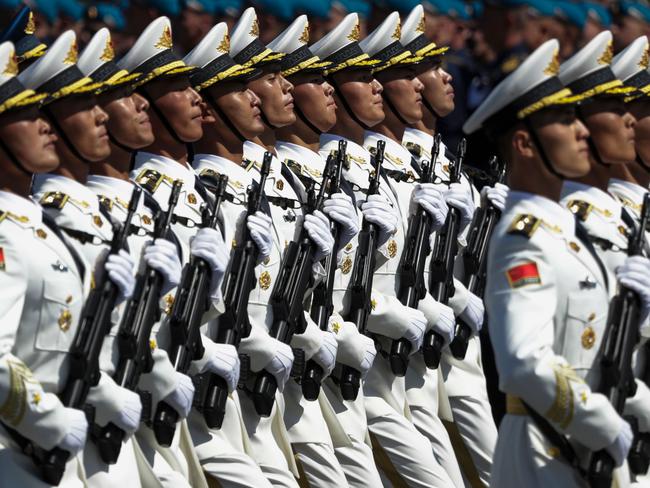
“If you’re already in China, and wish to return to Australia, we recommend you do so as soon as possible by commercial means,” a statement said.
DFAT said China will not allow most foreigners to enter China due to COVID-19.
“Direct flights between China and Australia have significantly reduced,” the statement said.
“If despite our advice you travel to China, you’ll be subject to 14 days mandatory quarantine.
“Quarantine requirements may change at short notice.”
Australian National University national security expert Rory Medcalf said the warning was the right move from the government.
“It’s a sad reflection of a sad reality that we now live in and we can expect to see a range of other countries sharpen their travel advice around similar lines,” he said.
He said he believed ‘hostage diplomacy’ was likely one of the concerns motivating the movement, as well as the Hong Kong national security laws.
“I suspect the Hong Kong national security law was probably the last straw,” he said.
“It means Australians in Hong Kong or mainland China could be breaking the law without even realising it.
“Any activity that promotes or encourages freedom in Hong Kong is essentially illegal. This could extend to simply expressing an opinion.”
Two Canadians were arrested in China in December 2018 in what was widely seen as “hostage diplomacy” as it came weeks after a Huawei executive was arrested in Canada, while Australian writer Yang Hengjun was detained in January 2019.
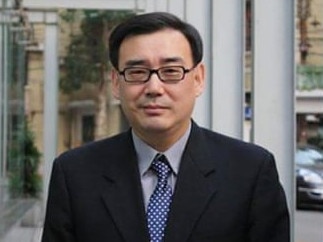
AMERICA TO BAN TIKTOK OVER CHINA SECURITY CONCERNS
The US has become the latest country to consider a ban on TikTok and other Chinese social media apps amid concerns over security.
Secretary of State Mike Pompeo said the White House is taking claims that data from the video-sharing app is being shared with authorities in Beijing “very seriously”.
Last week the Indian government banned 59 Chinese phone apps, including TikTok, saying that data collected from users was being used illegally and was a threat to national security.
There are calls for a similar move in Australia after a series of cyber attacks on public bodies in the country were linked to the Chinese state.
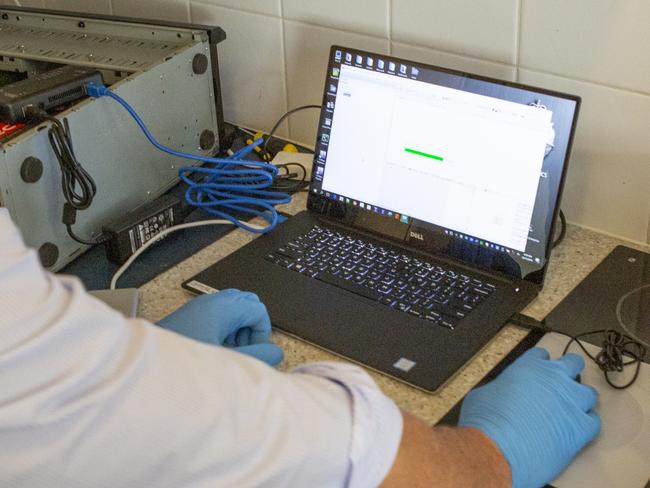
Asked about a US ban Mr Pompeo said: “With respect to Chinese apps on people’s cell phones, I can assure you the United States will get this one right.
“I don’t want to get out in front of the president, but it’s something we’re looking at.”
He added that Americans should only user the app if “you want your private information in the hands of the Chinese Communist Party”.
The US is home to some of TikTok’s biggest stars, including dancer Charli D’Amelio, filmmaker Zack King, and actor Will Smith, who have over 140 million followers between them.
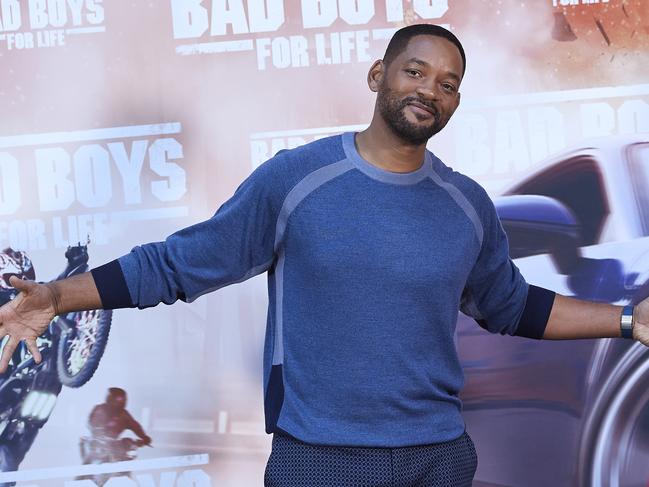
Tellingly, the platform is not available in China.
TikTok denies sharing data with Beijing and has sought to distance itself from its Chinese roots to appeal to a global audience.
It has announced that it will pull its app from Hong Kong following the introduction of sweeping new security laws that will increase Beijing’s reach in the territory.
The laws will target crimes of secession, subversion, terrorism and collusion with foreign forces, and it is thought Beijing intends to used them to target its political opponents.
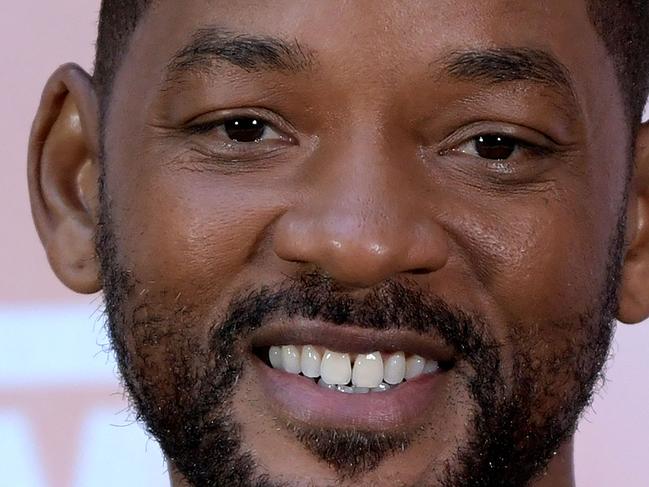
Recent months have seen heightening tensions between China and the Western powers over the crackdown in Hong Kong as well as the Chinese government’s handling of the coronavirus.
Pompeo’s comments come amid speculation that the UK government is planning a U-turn on its decision to allow Chinese tech giant Huawei to build a part of the UK’s 5G network.
Critics have long argued that allowing the company, thought to have ties to the Chinese state, to build the network would undermine the UK’s national security.
CHINESE AGGRESSION ‘DISTRACTS’ FROM COVID MESS
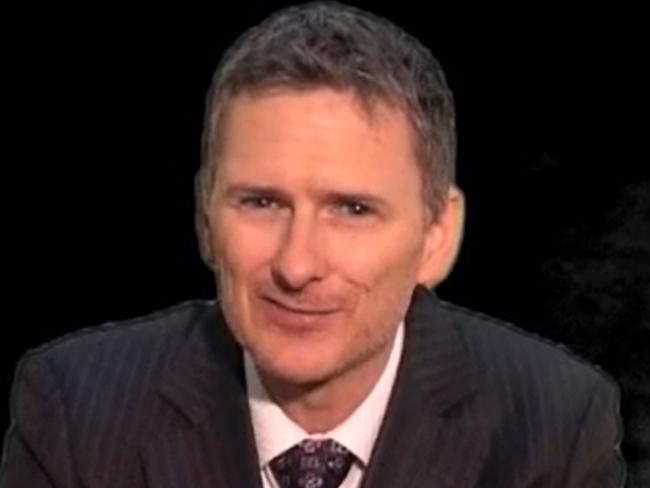
Australian Strategic Policy Institute executive director Peter Jennings has previously said that China’s increased aggression, which has been seen globally, was about distracting its own citizens’ attention away from the Communist Party’s mishandling of COVID-19.
Australian actor Karm Gilespie was sentenced to death in China last month, despite having been in jail for drug trafficking for the past six years.
There have been increasing tensions between Australia and China in recent months, including over trade, Chinese travel warnings against coming to Australia, accusations of cyber espionage and the Morrison Government backing a WHO inquiry into the origin of COVID-19.
It comes as new Chinese national security laws have also come into effect in Hong Kong, which carry life in prison for any subversion or foreign collusion against the Communist government.
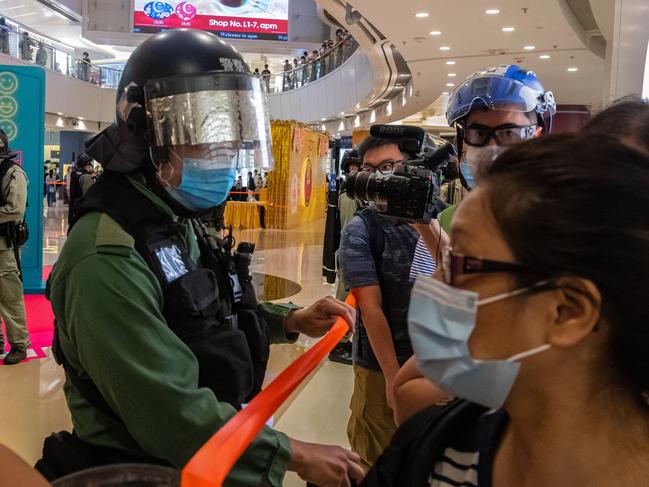
Hong Kong’s leader Tuesday defended Beijing’s new security law, saying it would restore stability and confidence as she vowed to “vigorously implement” the controversial legislation.
Speaking at a press conference a week after China imposed the law on the semi-autonomous city, Chief Executive Carrie Lam combined warnings with assurances to Hong Kong’s 7.5 million residents.
“The Hong Kong government will vigorously implement this law,” she said.
“And I forewarn those radicals not to attempt to violate this law, or cross the red line, because the consequences of breaching this law are very serious.”
She denied allegations the law would stifle freedoms and hit out at what she said were “fallacies” written about its impact.
“Surely this is not doom and gloom for Hong Kong,” Lam said.
“I’m sure with the passage of time … confidence will grow in ‘One Country, Two Systems’ and in Hong Kong’s future,” she added, naming the model that allows Hong Kong to keep certain liberties and autonomy from the mainland.
The national security law is the most radical shift in how Hong Kong is run since the city was handed back to China by Britain in 1997.
The content was kept secret from Hongkongers until the moment it was imposed one week ago, bypassing the city’s legislature.
It targets crimes under four categories: subversion, secession, terrorism and colluding with foreign forces, and gives China jurisdiction in some especially serious cases.
